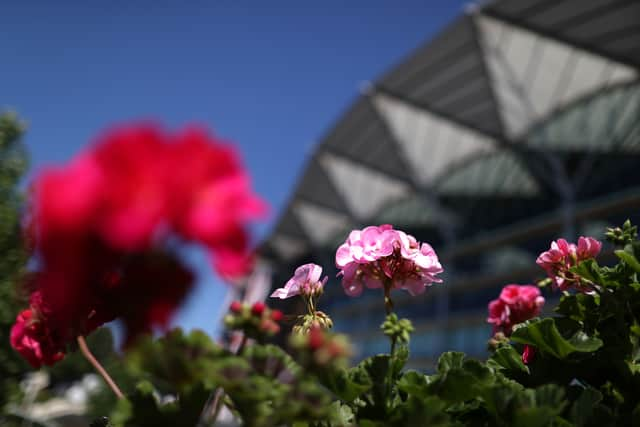Royal Ascot to be hit by pollen bomb with hay fever suffering racegoers warned of Met Office red alert
and live on Freeview channel 276
Royal Ascot racegoers should pack be sure to pack their tissues this week with the five-day event set to be hit by a pollen bomb.
It's bad news for hay fever sufferers hoping to enjoy the prestigious racing action away from allergies but the high pollen predictions come as a result of a largely dry week.
Advertisement
Hide AdAdvertisement
Hide AdRacing at Royal Ascot begins at 2:30 pm on Tuesday, June 20 with The Queen Anne Stakes and culminates at 6:10 pm on Saturday, June 24 with The Queen Alexandra Stakes.
It's set to be a landmark year for the event, which is known to be a highlight of the horse racing calendar, given it's the first Royal Ascot since the passing of the late Queen Elizabeth II.
The monarch attended almost every Royal Ascot over her 70-year reign, only missing it once in 2020 due to the Covid-19 pandemic, and organisers have adorned the famous halls of Ascot with images and tributes to Her Majesty for the 2023 edition.
This year will also be the final bow for legendary jockey Frankie Dettori who will retire from the sport later this year after an illustrious career.
Advertisement
Hide AdAdvertisement
Hide AdIt's set to be a warm week at Ascot with highs of 26 degrees hitting the racecourse on Friday and Saturday. The Met Office has also predicted that pollen levels will be 'very high' on every day except Thursday, which is given a 'high' warning with red alerts across the board.
Pollen counters A.Vogel have given the highest classification of pollen levels every day at Royal Ascot with 'very high pollen' coming from grass.


It comes after reports that weekly visitors to the NHS website from those seeking hay fever help tripled over the past six weeks with one visit every three seconds on Sunday, June 11.
Margaret Kelman, Acting Head of Clinical Services at Allergy UK said: “The number of people affected by hay fever has trebled in the last thirty years.
Advertisement
Hide AdAdvertisement
Hide Ad“The condition is becoming more common, partly due to better diagnosis but also due to climate change, with warmer temperatures causing pollen seasons to start earlier and last longer.
"The weather affects hay fever exposure and symptoms because pollen counts are higher on dry, warm days with low humidity and a gentle breeze to help disperse the fine pollen granules into the air and keep the pollen grains circulating.”
It's not just racegoers who will be finding a way to cope with the high levels of pollen swirling around Ascot with some horses susceptible to hay fever symptoms too.
Affected horses can show signs of lethargy and increased eye and nose discharge if affected by pollen.
Comment Guidelines
National World encourages reader discussion on our stories. User feedback, insights and back-and-forth exchanges add a rich layer of context to reporting. Please review our Community Guidelines before commenting.
